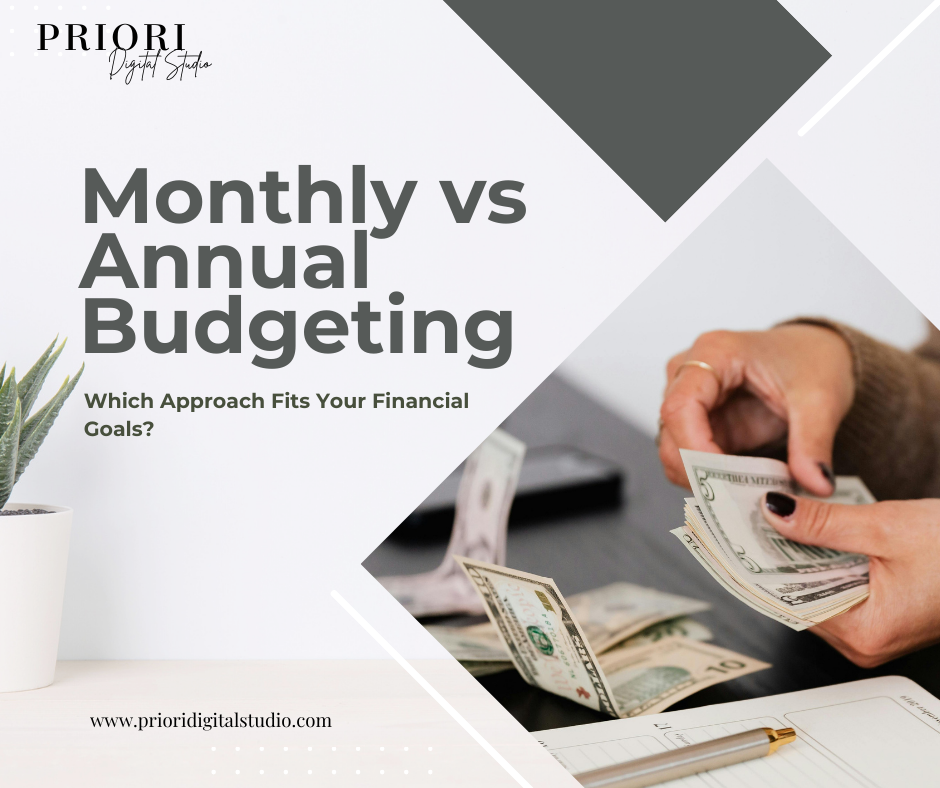Staring at a pile of bills while your bank account balance dwindles? You're not alone. According to a 2024 survey by Bankrate, 56% of Americans can't cover a $1,000 emergency expense with savings, yet only 32% actively maintain a budget. If you've been avoiding budgeting because it feels overwhelming or you're unsure where to start, we're here to help make it less intimidating.
Here's the thing: before you dive into spreadsheets or download that budgeting app, there's one crucial decision that can make or break your financial success, how often should you budget? This seemingly simple choice between monthly and annual budgeting frameworks will shape your entire financial strategy and determine whether you stick with it long-term.
This guide breaks down the pros, cons, and best use cases for both approaches, helping you discover which budgeting rhythm aligns with your personality, income patterns, and financial goals. Because the truth is, the best budget isn't the most complex one, it's the one you'll actually use.
Understanding the Two Budgeting Approaches
Before we dive into the comparison, let's clarify what we mean by each approach.
Monthly Budgeting involves creating a detailed financial plan for each 30-31 day period. You'll track income and expenses in real-time, often checking in weekly or bi-weekly to ensure you're staying on track. Think of it as your financial microscope, it gives you granular control over every dollar that flows through your accounts.
Annual Budgeting, on the other hand, takes a bird's-eye view of your finances. You'll project your entire year's income, major expenses, savings goals, and debt payments upfront. This strategic framework is then broken down into smaller periods for execution. It's your financial roadmap for the next 12 months.
Here's a key point that many people miss: these approaches aren't mutually exclusive. According to financial planner Kristen Gall, CFP, "The most successful budgeters often use annual planning to set their strategic direction, then implement it through monthly execution." This hybrid approach, which we'll explore later, combines the strategic vision of annual budgeting with the tactical control of monthly planning.
The Case for Monthly Budgeting: Mastering Cash Flow Control
Monthly budgeting centers around one core philosophy: master your daily spending habits to control your financial destiny. If you're someone who wants to know exactly where every dollar goes, this approach might be your perfect match.
The Monthly Budgeting Advantages
Granular Spending Control
Monthly budgeting offers unparalleled visibility into your spending patterns. A Mint study found that users who track expenses monthly reduce unnecessary spending by an average of 23% within the first three months. When you're reviewing transactions weekly, it's much easier to spot that $4.50 daily coffee habit that's costing you $1,350 annually.
Lower Barrier to Entry
Planning one month feels manageable compared to projecting an entire year. "Starting with monthly budgeting removes the paralysis that comes with long-term planning," explains Andrew Westlin, certified financial planner at Betterment. "You can make mistakes, learn, and course-correct within just 30 days."
High Adaptability
Life happens. Your car breaks down, a friend gets married, or you land a freelance gig. Monthly budgeting allows you to adjust categories within the same period without derailing your entire financial plan. This flexibility is crucial for the 36% of Americans who report having variable monthly income.
Perfect for Variable Earners
If you're a freelancer, commissioned salesperson, or gig worker, monthly budgeting aligns with your income reality. You can scale your discretionary spending up or down based on what you actually earned, rather than trying to stick to arbitrary annual projections.
The Monthly Budgeting Drawbacks
However, monthly budgeting isn't without its challenges.
Big Picture Blindness
When you're focused on this month's groceries and gas, it's easy to forget about property taxes due in November or that family vacation you promised to take next summer. This myopic view can derail long-term financial goals.
The "Use It or Lose It" Trap
Many monthly budgeters fall into the mentality that leftover category money should be spent rather than saved. If you budgeted $200 for dining out but only spent $150, the temptation is to splurge on an expensive meal rather than redirect that $50 toward savings.
Administrative Overhead
Constant transaction logging and category management can become tedious. A YNAB user survey revealed that 28% of users abandon monthly budgeting within six months, citing "too much daily maintenance" as the primary reason.
The Case for Annual Budgeting: Strategic Financial Planning
Annual budgeting operates from a fundamentally different philosophy: align your spending with your long-term financial vision. If you're goal-oriented and prefer strategic thinking over daily details, this approach deserves serious consideration.
The Annual Budgeting Advantages
Comprehensive Goal Alignment
Annual budgeting forces you to think strategically about your financial priorities. Want to save $15,000 for a house down payment? An annual budget breaks that into monthly targets ($1,250) and helps you identify exactly which expenses to cut. Research from Fidelity shows that people with written annual financial goals are 42% more likely to achieve them.
"Surprise" Expense Elimination
Property taxes, insurance premiums, holiday gifts, and annual subscriptions add up quickly. Annual budgeters create sinking funds throughout the year, setting aside money each month so these "irregular" expenses don't feel like emergencies. The average American household has $3,200 in annual irregular expenses, according to Bureau of Labor Statistics data.
Reduced Day-to-Day Management
Once your annual framework is established, you're freed from constant transaction monitoring. You can focus on bigger financial decisions while letting the system run in the background with periodic check-ins.
Enhanced Investment Strategy
Annual budgeting naturally incorporates long-term investing goals. You can maximize contributions to retirement accounts, plan for tax-loss harvesting, and take advantage of dollar-cost averaging strategies that require consistent monthly investments.
The Annual Budgeting Drawbacks
Overwhelming Initial Setup
Projecting 12 months of income and expenses can feel daunting, especially for budgeting newcomers. The complexity often leads to procrastination or oversimplified plans that don't reflect financial reality.
Reduced Flexibility
Major life changes, job loss, medical emergencies, or family additions, can completely derail an annual budget. Unlike monthly adjustments, annual budget overhauls require significant time and mental energy.
Drift Risk
Without monthly accountability checkpoints, it's easy to gradually drift off course. You might not realize you're overspending on dining out until you're $2,000 over budget in November, making it impossible to course-correct for the year.
Head-to-Head Comparison: Finding Your Financial Match
|
Factor |
Monthly Budgeting |
Annual Budgeting |
|
Time Horizon |
Short-term focus |
Long-term vision |
|
Primary Focus |
Cash flow & spending control |
Goal achievement & strategic planning |
|
Flexibility |
High (easy monthly adjustments) |
Low (requires major overhauls) |
|
Setup Complexity |
Low to medium per cycle |
High upfront investment |
|
Best For |
Variable income, detail-oriented, beginners |
Stable income, strategic thinkers, goal-setters |
|
Maintenance |
High (weekly check-ins) |
Low (quarterly reviews) |
|
Big Picture Awareness |
Risk of myopia |
Strong strategic vision |
Which Budgeting Rhythm Matches Your Personality?
To personalize this decision, honestly answer these questions:
What's your primary financial focus right now?
-
Controlling daily spending and plugging budget leaks → Monthly
-
Achieving specific savings goals and long-term planning → Annual
-
Both equally → Hybrid approach
How predictable is your income?
-
Steady salary with minimal variation → Annual budgeting works well
-
Variable commissions, freelance income, or seasonal work → Monthly provides needed flexibility
What's your personality type with money?
-
Love detailed tracking and frequent updates → Monthly appeals to your analytical nature
-
Prefer big-picture strategy with minimal daily management → Annual suits your executive mindset
-
Enjoy both strategic planning and tactical execution → Hybrid approach maximizes your strengths
What's your current financial skill level?
-
Budgeting beginner seeking simplicity → Start with monthly to build habits
-
Experienced planner ready for comprehensive systems → Annual budgeting can maximize your expertise
Real-World Archetypes
The Monthly Budgeter: Sarah, a freelance graphic designer, never knows if she'll earn $3,000 or $8,000 in a given month. She uses monthly budgeting to scale her discretionary spending based on actual income, ensuring she never overspends during lean months while maximizing her lifestyle during profitable ones.
The Annual Budgeter: Michael and Jennifer, both teachers with predictable salaries, use annual budgeting to plan their summer vacation, maximize their retirement contributions, and save for their daughter's college fund. Their stable income makes long-term planning both possible and powerful.
The Hybrid Approach: Maximizing Both Strategies
For most people, the optimal solution combines both approaches in a strategic annual plan with monthly execution. Here's how this hybrid model works:
Step 1: Create Your Annual Strategic Framework
Start with the big picture. Project your expected annual income from all sources, list your fixed expenses (rent, insurance, loan payments), and set specific savings goals. Identify all large, irregular expenses like property taxes, holiday gifts, and vacation costs.
Step 2: Break Down into Monthly Tactical Plans
Use your annual framework to establish monthly spending limits for each category. If you allocated $6,000 annually for dining out, your monthly limit is $500. This gives you the granular control of monthly budgeting within your strategic annual vision.
Step 3: Implement Monthly Reviews with Quarterly Adjustments
Track your actual spending against monthly targets using your preferred budgeting tool. Every quarter, compare your progress against annual goals and adjust your plan for life changes, promotions, expense increases, or goal modifications.
According to research from NerdWallet, hybrid budgeters achieve their financial goals 67% more often than those using single-approach methods.
Getting Started: Your Next Steps
For Monthly Budgeters: Download a budgeting app like YNAB or Mint. List next month's expected income and categorize your expenses. Start tracking immediately and review weekly.
For Annual Budgeters: Create a comprehensive spreadsheet or use tools like Tiller. Project all income sources and expenses (both monthly and annual), then set specific savings targets for the year.
For Hybrid Budgeters: Begin with annual planning to establish your strategic framework, then implement it using monthly budgeting tools for day-to-day execution.
Your Budget, Your Rules
Here's the fundamental truth about budgeting: the best budget is the one you'll actually stick with. Whether you choose monthly precision, annual strategy, or a hybrid approach, consistency matters more than perfection.
Don't be afraid to experiment. Start with the method that feels most natural, and if it doesn't click after three months, pivot to a different approach. Your budgeting rhythm should support your financial goals, not create additional stress.
The act of budgeting itself, regardless of frequency, puts you ahead of the 68% of Americans who don't actively manage their money. Whether you're tracking monthly transactions or planning annual goals, you're taking a powerful step toward financial clarity and achieving your dreams.
Additional Resources
For deeper insights into budgeting strategies and financial planning, explore these authoritative resources:
-
Consumer Financial Protection Bureau: Budgeting and Planning Tools
-
Federal Trade Commission: Making a Budget
-
National Endowment for Financial Education: Financial Planning Resources
-
Investopedia: Comprehensive Budgeting Guide
-
SmartAboutMoney.org: Budgeting Basics
These resources provide additional templates, calculators, and expert advice to support your budgeting journey, regardless of which approach you choose.



Share:
The 50/30/20 Budget Rule: A Modern Guide for Real Life
The No-Spend Challenge: How to Reset Your Financial Habits